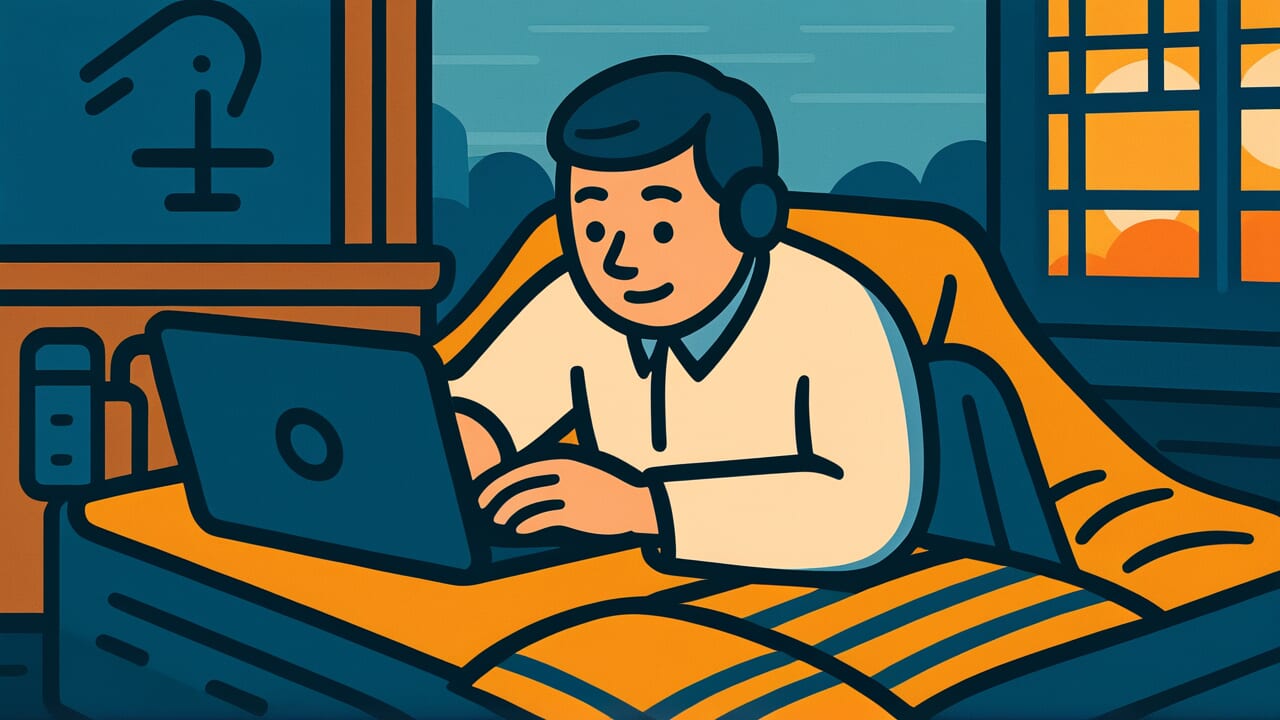How to Read “The sun rises and you work, the sun sets and you rest”
Hi idete nasashi, hi irite yasurau
Meaning of “The sun rises and you work, the sun sets and you rest”
This proverb describes a way of life that follows nature’s rhythm. You begin working when the sun rises and rest when it sets.
It teaches the importance of living according to the great flow of nature rather than deciding your life’s pace based on personal convenience or desires. You entrust yourself to the movement of heaven.
Today, people use this saying when discussing the importance of regular lifestyle habits. It also appears in conversations about rediscovering ways of living close to nature.
Sometimes it’s quoted to warn against excessive late nights or irregular schedules. Surrounded by artificial lighting and digital devices, modern people are rediscovering this proverb’s wisdom.
The idea of harmony with nature serves as a guide for healthy living in our contemporary world.
Origin and Etymology
This proverb likely comes from the ancient Chinese text “Striking the Earth Song” (Gekijōka). The song was supposedly sung by an old man during the legendary reign of Emperor Yao.
He struck the ground while singing. The lyrics contained the phrase “ri chu er zuo, ri ru er xi,” which means the same thing. This phrase traveled to Japan and became established as this proverb.
Emperor Yao’s reign symbolized ideal governance. People lived peacefully following nature’s rhythms during that era. The old man’s song expressed joy in a simple, natural life.
He worked and rested according to the sun’s movement without even thinking about the ruler’s benevolence.
In Japan, this saying was embraced as a proverb showing the ideal attitude for agricultural society. Farmers worked in the fields with sunlight and returned home to rest when the sun set.
This was exactly the world the proverb describes. In times without artificial lighting, the sun was the absolute force determining people’s daily rhythms.
This proverb contains the importance of living without resisting nature’s providence.
Interesting Facts
The classical word “nasu” differs slightly from the modern “tsukuru” (to make). It means “to work” or “to do one’s job.”
Similarly, “yasurau” is a classical word meaning “to rest.” The proverb deliberately uses these old words to emphasize timeless wisdom that transcends eras.
Science has proven that the human body clock runs on roughly a 24-hour cycle. It resets when exposed to sunlight.
Morning sun triggers wake-up hormones, while darkness at night produces sleep hormones. This mechanism perfectly matches the lifestyle rhythm this proverb describes.
Usage Examples
- I’ve been feeling great lately, probably because I returned to the old way of life: the sun rises and you work, the sun sets and you rest
- My grandfather is healthy even past 90, likely because he’s continued following “the sun rises and you work, the sun sets and you rest” throughout his life
Universal Wisdom
This proverb contains a fundamental truth: humans are part of nature. No matter how much we develop civilization, we remain beings who cannot live without sunlight.
Just as plants survive through photosynthesis, humans are life forms inseparable from the sun’s rhythm.
This saying has been passed down for thousands of years because humans have paid the price in physical and mental problems every time they’ve tried to separate from nature’s rhythm.
Working all night damages the body. Continuing a day-night reversed lifestyle harms the mind. This human nature hasn’t changed from ancient China to modern Japan.
What’s interesting is that this proverb doesn’t say “work hard” or “don’t be lazy.” It simply says “live with the sun.”
There’s a reverence for nature’s providence that goes beyond human will or effort. The deep human understanding here is that thinking you can control everything is arrogance.
True wisdom lies in following nature.
Much of the fatigue modern people feel may stem from living outside this natural rhythm.
When AI Hears This
The human brain’s hypothalamus contains a region called the suprachiasmatic nucleus, made of only about 20,000 nerve cells. It houses special clock genes that automatically turn on and off in roughly 24.2-hour cycles.
Interestingly, this cycle nearly matches Earth’s rotation period. This proverb isn’t describing a consciously chosen lifestyle habit but rather a program embedded at the cellular level.
More surprisingly, this biological clock exists in cells throughout the body. The liver intensifies detoxification at night. The intestines increase digestive enzyme secretion in the morning.
These functions synchronize through commands from the suprachiasmatic nucleus and reset when light enters the eyes. However, modern people continue exposing themselves to strong light late at night, disrupting this synchronization.
Research shows chronic circadian rhythm disruption increases insulin resistance by 40 percent and doubles depression risk.
Studies of shift workers are particularly noteworthy. Continuing night shifts reverses clock gene expression patterns and reduces immune cell activity.
This isn’t simple fatigue but genetic-level dysfunction. This proverb may have been empirically warning about the danger of rewriting life’s blueprint in just a few generations.
That blueprint took billions of years to adapt to sunlight.
Lessons for Today
This proverb teaches you the importance of having courage to reconsider your life rhythm. Twenty-four-hour stores, smartphones glowing until late night, environments where you can always work.
In exchange for convenience, we’ve moved away from nature’s rhythm.
But is this really the life you wanted? Waking to morning sun, concentrating on work during the day, truly relaxing after sunset.
Such simple living might actually bring the best performance and happiness.
You don’t need perfect practice. Once a week is fine. Only on holidays works too. Try waking early and taking a walk. Try putting away digital devices earlier at night.
Start with small steps. Your body surely remembers nature’s rhythm and will respond to it.
Humans are part of nature. Simply remembering this fact will change how you face daily fatigue and stress.



Comments